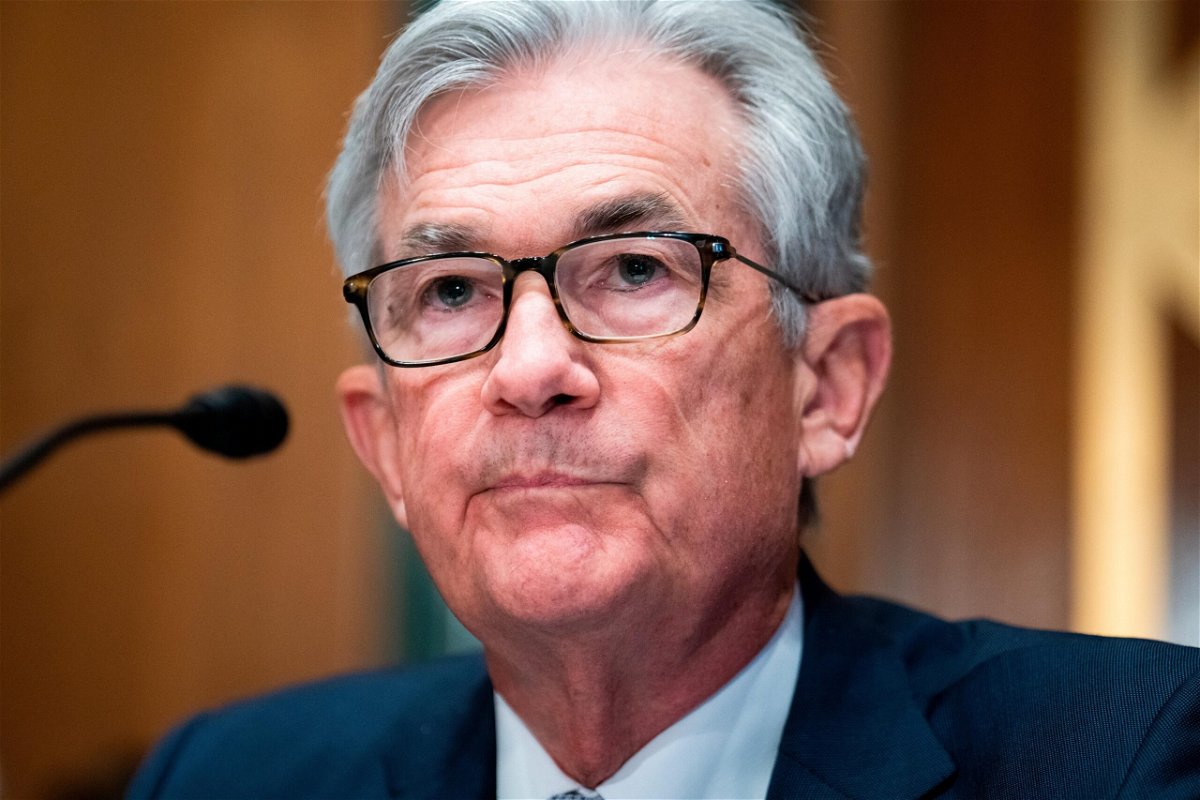For big American banks, Powell matters more than Putin

U.S. Federal Reserve Chair Jerome Powell testifies at a Senate Banking
By Paul R. La Monica, CNN Business
American and European businesses are rapidly distancing themselves from Russia in the wake of its invasion of Ukraine. You’d think that would be a problem for America’s top banks, which have deep ties to businesses across the globe, including Russia. But you’d be wrong.
While investors are waiting to see the effect global sanctions will have on Russia’s economy and big US banks, they’re likely better off watching Federal Reserve chairman Jerome Powell, not Russian leader Vladimir Putin, to try to figure out what’s next.
Major US banks do have some exposure to Russia’s economy — but only about $15 billion worth, according to data from the Bank of International Settlements and Wells Fargo Investment Institute. That’s less than 0.1% of the total assets in the US banking system.
So Russia-related lending concerns are unlikely to give Powell any pause about hiking interest rates at next week’s Fed meeting. After all, there doesn’t seem to be any risk of a Russia contagion spreading through the US banking system.
Financial firms in Italy, France and Austria have more exposure to Russia than the US — and their banking systems aren’t as large as America’s, so their Russia-related risk is higher. That’s one of the main reasons why shares of Italy’s UniCredit and France’s Societe Generale have each plunged more than 35% in the past month.
Banks in Germany, the Netherlands and Switzerland — which also have smaller economies than the US — all have relatively high exposure to Russia as well, according to the BIS and Wells data.
So investors in top US banks may be able to breathe a little easier knowing that exposure to Russia is low — and that the Russia-Ukraine conflict is not likely to alter the Fed’s plans to gradually raise interest rates.
Banks will make more money from loans as rates climb, and Powell made it pretty clear in congressional testimony last week that he supports a quarter-point rate hike at the Fed’s next meeting on March 15. Traders are now pricing in a nearly 100% chance that the Fed will do just that, and then continue raising rates throughout the year.
Those increased rate-hike expectations have lifted long-term bond yields — and bank stocks. The Financial Select Sector SPDR Fund soared more than 4% on Wednesday. This exchange-traded fund has JPMorgan Chase, Bank of America, Wells Fargo, Citigroup, Morgan Stanley and Goldman Sachs among its top holdings.
Two ETFs that own smaller regional banks, which make even more money from mortgages and other consumer loans, also surged Wednesday.
What US banks are concerned about
There’s a potential dark cloud on the horizon, but it has nothing to do with Russia. There are some concerns that banks could face a tough road ahead if surging oil prices help create a dreaded stagflation scenario: the combination of a slowing economy due to runaway inflation.
“Higher energy prices, higher commodity prices, and the prospect of slower economic growth due to lower spending place the Fed in a bit of a pickle,” Gerald Sparrow, chief investment officer with Sparrow Capital Management, said in a recent note to clients. “The inflationary impact of these factors could be considerable.”
If the Fed is forced to raise rates more aggressively than currently expected to tamp down inflation, that could eventually push interest rates to levels that would feel punitive to consumers and companies looking to borrow money.
In other words, any advantage that banks would have from higher rates boosting lending profits could be more than offset by the grim reality that loan demand would likely dry up.
“The Fed has to deal with inflation. Banks are overvalued right now at this juncture,” said David Wagner, portfolio manager at Aptus Capital Advisors. “They face a perfect storm of slowing economic growth and lower profits.”
The-CNN-Wire
™ & © 2022 Cable News Network, Inc., a WarnerMedia Company. All rights reserved.


